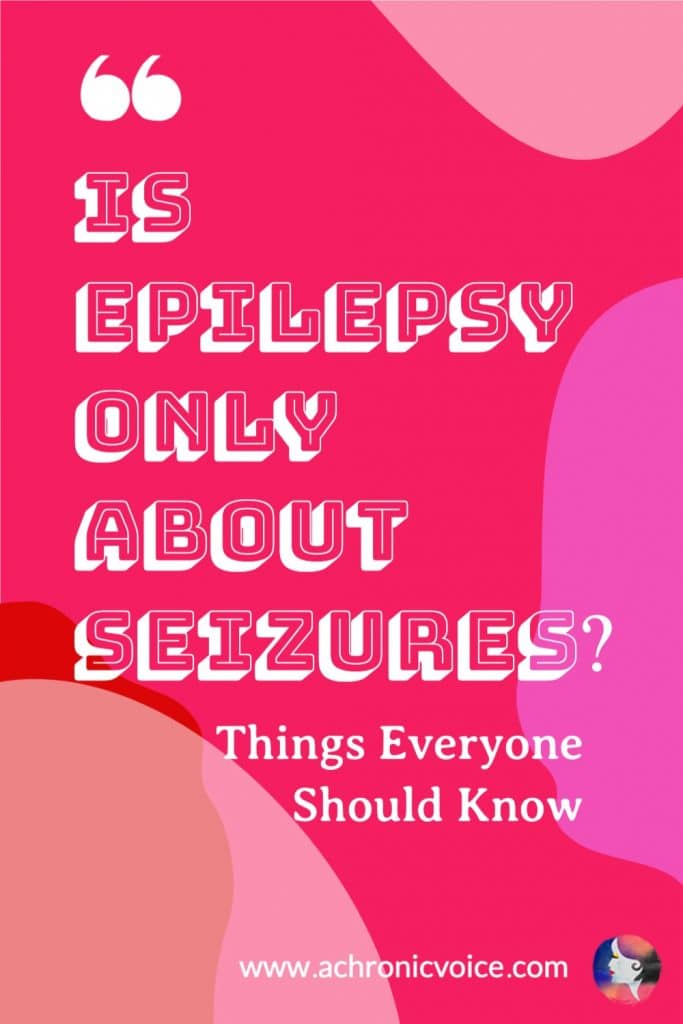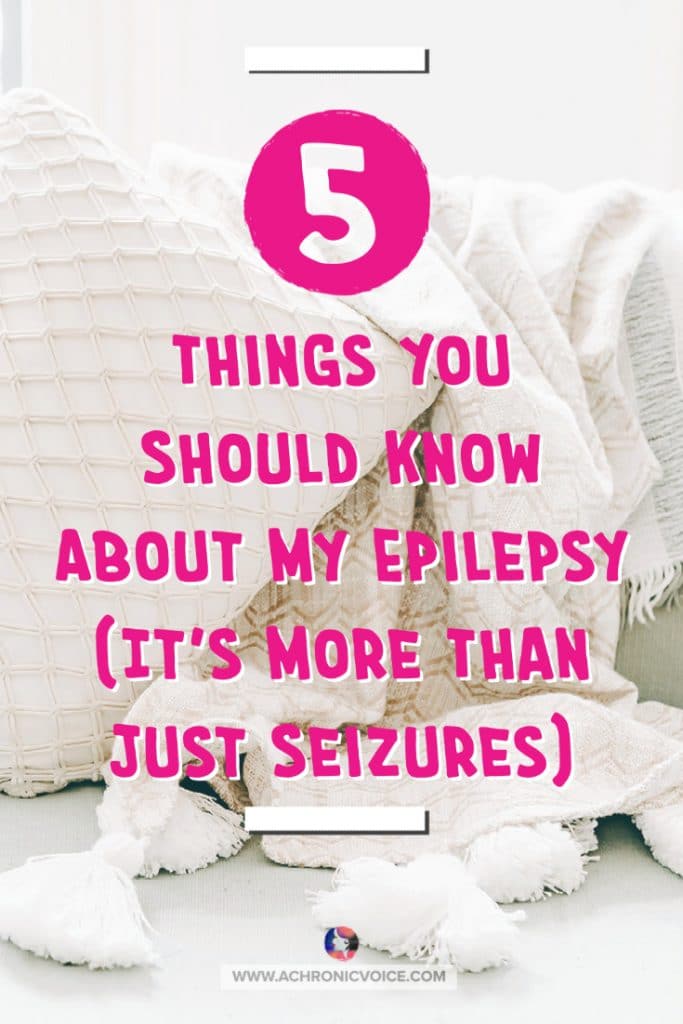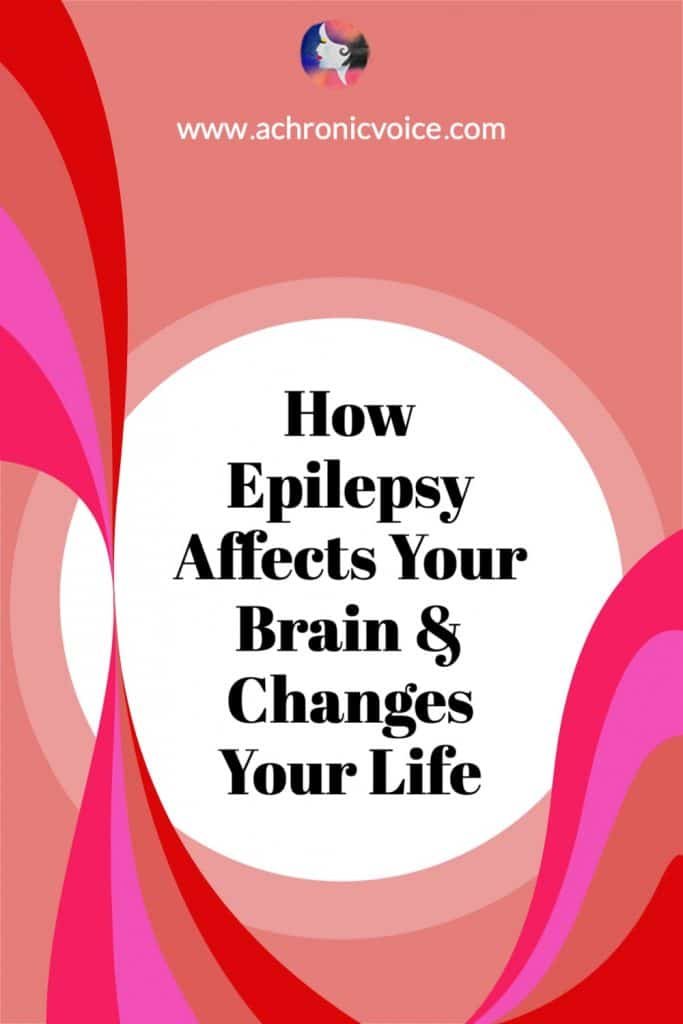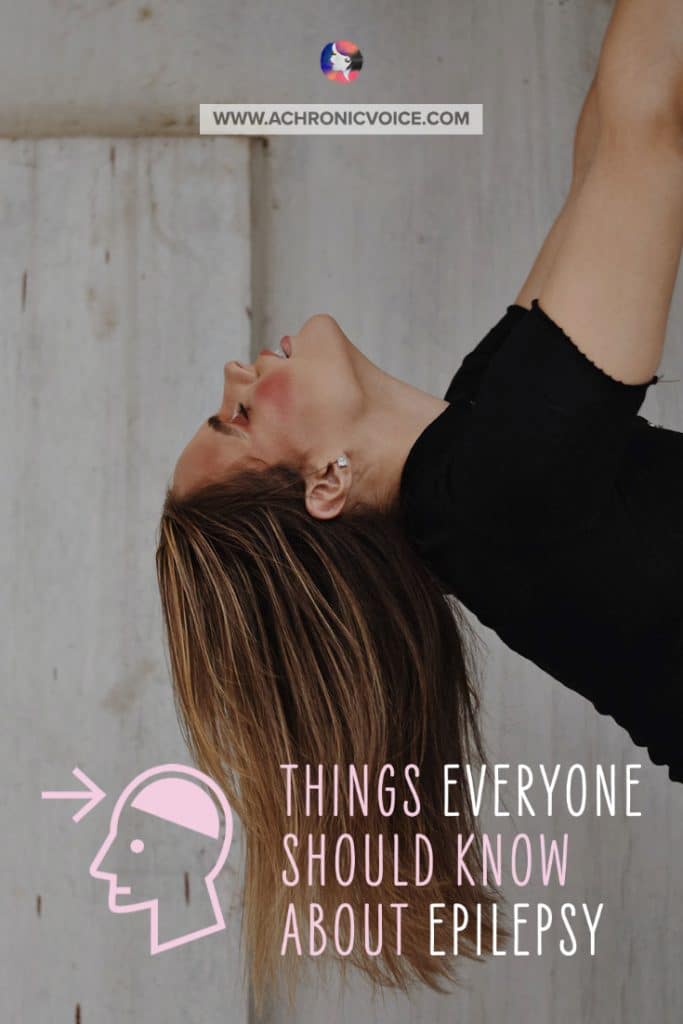
by Sheryl Chan
*Note from A Chronic Voice: Tiffany Kairos is an active advocate in the chronic illness and epilepsy community online, and such a lovely lady, too! She’s constantly supporting and giving shoutouts to other chronic illness advocates whenever and wherever she can. I live with epilepsy myself, albeit to a lesser degree than Tiffany does. My form of epilepsy is the typical grand mal seizures that you see on TV, and for a period of time they were happening dangerously in my sleep. Let’s read Tiffany’s experiences with epilepsy, and learn more from her in this post!
By and large, when I tell someone that I live with epilepsy they’re taken aback, astonished that I appear fine and relatively healthy. They also have an expression of perplexion, because they don’t know what epilepsy is.
There are over 40 types of epilepsy, many of which do not always involve dropping and convulsing. (Also known as a grand mal, or generalised tonic-clonic seizure.) My condition, epilepsy, is a neurological disorder, which means that it impacts more than just my brain.
Here’s what you should know about living with epilepsy, which I share about in this article through my own experiences.
1. Epilepsy Is More Than Just Seizures
Symptoms that commonly occur alongside epilepsy include:
- Depression and Anxiety
- Fear
- Stress
Taking care of our physical health is half the battle when living with epilepsy. It’s an emotional and social battle, too. When the doctor first dropped the bombshell that I had epilepsy, I felt every emotion in the book so deeply, yet numb at the same time.
I wrestled with depression for over a year. Research estimates that 30 to 35 percent of people with epilepsy experience depression. Living in constant fear of when the next seizure would strike, and stressed about what my future might look like.
And strike they did. Unexpectedly, continuously and variously.
- So This is What a Seizure Feels Like
- Clinical Depression: Diagnosed 10 Years Late
- Sometimes, Physical Pain Isn’t the Worst Part About Chronic Illness
Pin to Your Chronic Illness Awareness Boards:


2. The Importance of Having a Support System in Place
A rock solid support system is essential for tackling any difficulties along the way. The empowerment of having family and friends whom you can count on to encourage and cheer you on is priceless. It certainly was and is for me. My spouse and family refused to let my condition consume me, and lifted me up when I was down. They gave me the strength that I needed to stand on my own two feet again.
I knew that I would be facing countless challenges that were out of my control, but I also decided that I wasn’t going to give up the fight. I was going to learn everything there was to know about my condition, persevere and help others on their journey, too. I’d discovered what my future would look like.
- 7 Ways to Be a Better Friend to Someone with a Chronic Illness (and 3 Things You Should Never Do)
- 4 Cool Truths My Partner Said (Unwittingly)
- What’s it Like to be the Mother of a Sick Child? (Precious Insights from My Own Mum)
- What’s it Like to be the Father of a Sick Child? (Precious Insights from My Own Dad!)
- Celebrating Caregivers – the Unsung Heroes of Everyday Life
- Chronic Illness Social Pod: What, Why & How
3. Epilepsy Has No Regard For Your Age
Epilepsy doesn’t discriminate. It can happen to anyone – young or old. I was diagnosed at 22, having had my first seizure at 16.
I never anticipated that a chronic illness would happen to me. I thought that I was invincible. Boy was I wrong. There’s nothing more chilling than when reality slaps you in the face.
- A Page From a Sick Girl’s Diary: Sometimes I Wish I was an Old Person
- This is What Hell Must Feel Like (Full Story)
4. Epilepsy is Often Invisible & Unpredictable
Just because you don’t see it happening, doesn’t mean that I don’t experience it. Epilepsy doesn’t always like to show its cards. It’s common for it to be an invisible illness. Various treatments and medications are available which can slow or even halt seizure activity. However, someone with epilepsy may still need assistance to complete certain tasks.
One minute I can feel perfectly healthy. The next thing I know, I’m resting with a heating pad draped across my forehead, nursing a pounding migraine after experiencing a massive seizure.
On certain days my epilepsy cuts me some slack, which allows me to enjoy activities. On other days however, my amount of activity is limited, or I need to take breaks to avoid triggering a seizure.
Seizures often strike without warning and I’m left with no choice but to cancel plans, which I hate. I don’t want to appear flaky, yet I need to pick up the phone, call or text to back out of something that I had been looking forward to.
- Chronic Illness is Unpredictable, but You Don’t Always Have to Fear the Unknown
- Would You Rather: Have an Invisible Illness or a Visible Disability?
- 33 Things That Stop People with Chronic Illness From Leaving the House (Sans COVID-19)
- 4 Everyday Scenarios We’re Not Sure How to be Polite About and Why
5. There Is No Cure for Epilepsy
Here’s the thing… Epilepsy is an incurable condition, although some people do go into remission. This is regardless of any documentary, magazine, article or grapevine information you may have read or heard. No essential oil, diet or herb is going to cure me.
Over the years of living with epilepsy, I’ve learned how and which situations can provoke seizure activity. For example, when it rains or when my period is coming. I need to ramp up on self-care, which consists of avoiding stress and resting more.
While they do not cure me, getting good sleep, proper stress management, certain exercises, a healthy diet, and taking medicine on time definitely help to reduce my seizures.
Epilepsy is a serious condition and should be treated as such by everyone, including those who don’t live with it. Your compassion, kindness and empathy are needed and appreciated as we are fighting an invisible battle every single day.
*Note: This article is meant for educational purposes and is based on the author’s personal experiences. It is not to be substituted for medical advice. Please consult your own doctor before changing or adding any new treatment protocols.
- A Roundup of Biggest Pain Flare Triggers (from 40 People with Chronic Illness)
- 40 People Share Their Best Pain Management Tips (What to Do if an Unforeseen Flare Up Hits)
- What I Thought About the Award-Winning Film, “Unrest” (vs My Healthy Movie Night Companions!)
- 12 Simple Tips to Manage Stress (or ‘How to Relax’ by Thich Nhat Hanh)
If you liked this article, sign up for our mailing list here so you don’t miss out on our latest posts! You will also receive an e-book full of uplifting messages, quotes and illustrations, as a token of appreciation!
Pin to Your Chronic Illness Boards:




Contributor Bio

Tiffany Kairos is an epilepsy survivor, advocate, and blogger. She is the founder of ‘The Epilepsy Network‘, which is an online community devoted to providing better epilepsy awareness and education, and also offers inspiration to all those who are affected by epilepsy. Tiffany’s works have been published on various health websites such as The Mighty, Huffington Post and Mayo Clinic. She has also been featured on a number of podcasts such as HealtheVoices Radio, The Epilepsy Spectrum and more. Connect with her here: Instagram / Twitter / Facebook / LinkedIn

